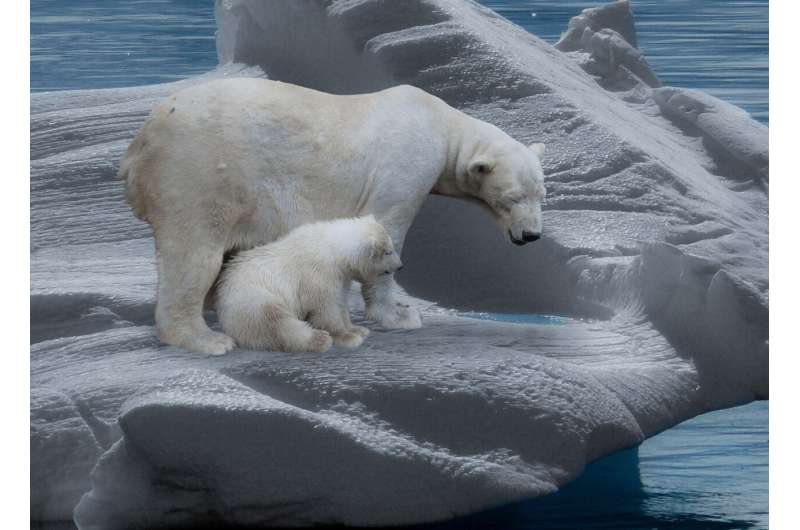Credit: CC0 Public Domain
Retreating sea ice in the Arctic is altering the gut bacteria of polar bears, potentially holding negative implications for the long-term health of the species, finds a new study by Cardiff University and the United States Geological Survey.
Polar bears are one of the most ice-dependent marine mammals in the Arctic and are key indicators of Arctic ecosystem health and environmental change. Since the 2000s, dramatic reductions in sea ice have caused a divide in the behavior of southern Beaufort Sea polar bears, with some continuing to follow the retreating sea ice (offshore bears) and others adopting a new behavior and migrating to coastal onshore habitat (onshore bears).
To understand the potential biological impact of this behavior change, researchers at Cardiff University analysed over 100 polar bear fecal samples, looking specifically at the bacterial composition of the bears' gut microbiota, and how this differs in onshore and offshore bears.
"We discovered that gut microbiota diversity and composition are significantly different in onshore bears compared to those that remain on the sea ice year-round, showing for the first time that global change-driven alterations in habitat use are associated with changes in the gut," explained Sophie Watson, a Ph.D. researcher from Cardiff University's School of Biosciences.
"These results indicate that, in the face of rapid climate change, microbiota associations within the gut are quickly becoming decoupled, potentially negating millions of years of co-evolutionary adaptation."
Dr. Sarah Perkins from Cardiff University's School of Biosciences explained the significance of the findings: "Gut microbiota plays a critical role in host health. In some cases, shifts in the diversity and composition of gut bacterial communities can be detrimental to individual health, and so further work needs to be conducted to understand how these differences affect polar bears.
"Understanding the ways in which polar bears respond to climate change-mediated displacement is crucial in discerning the species' ability to cope with an increasingly unpredictable and precarious environment."
"Global change-driven use of onshore habitat impacts polar bear faecal microbiota" is published in The ISME Journal.
More information: Sophie E. Watson et al. Global change-driven use of onshore habitat impacts polar bear faecal microbiota, The ISME Journal (2019). DOI: 10.1038/s41396-019-0480-2
Journal information: ISME Journal
Provided by Cardiff University






















